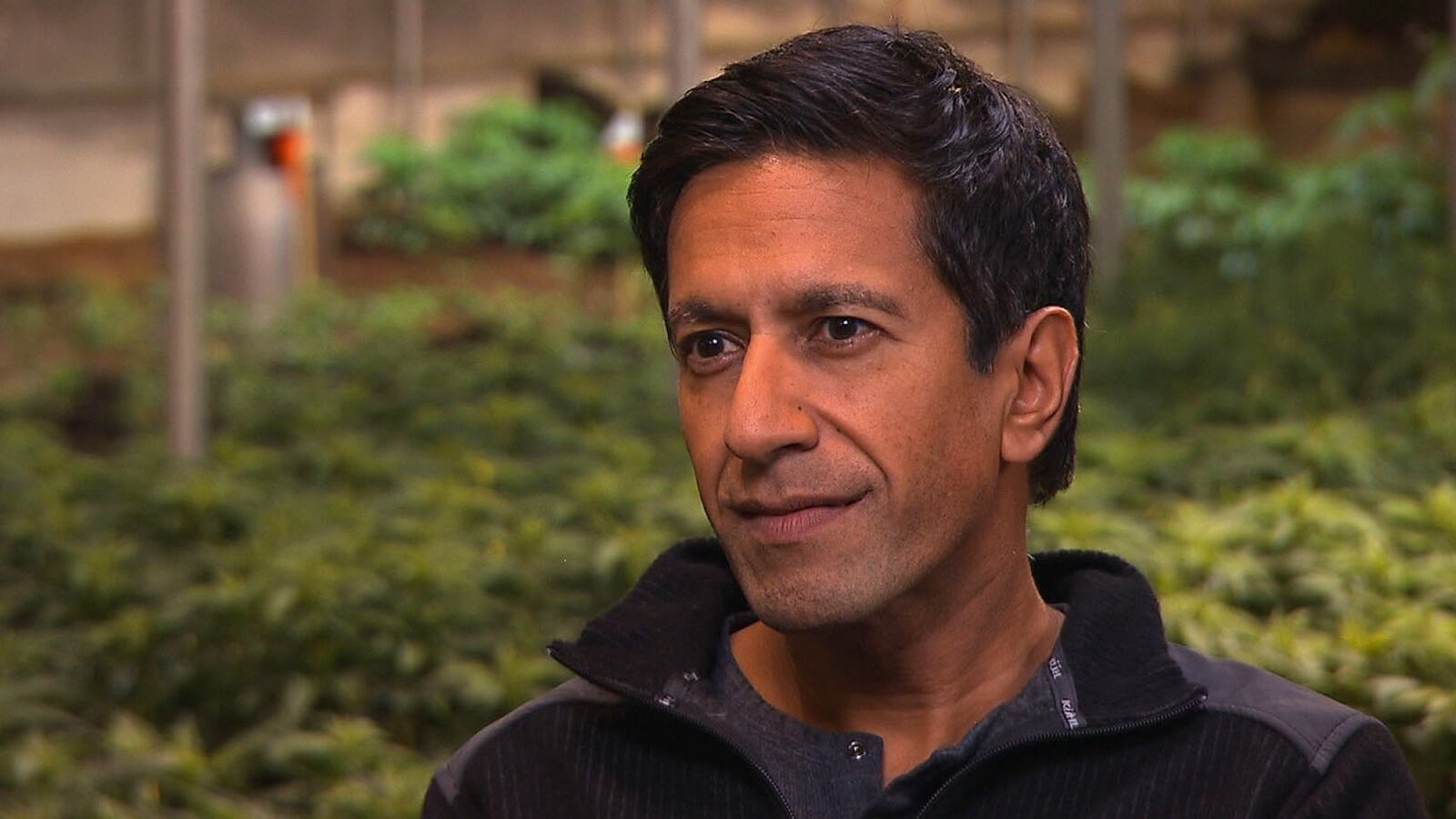Last summer, CNN made media waves by running Dr. Sanjay Gupta’s one-hour documentary WEED, where he followed a child named Charlotte and her family on their quest to quell her seizures. Their journey brought them, and Dr. Gupta, to medical marijuana.

It’s a journey Gupta continues to pursue, with his new documentary, WEED 2: Cannabis Madness.
When the first WEED aired, Dr. Gupta apologized, sincerely repentant for having poo-pooed the medicinal benefits of cannabis.
Today, he’s still apologetic. “You have to go for the truth,” Dr. Gupta tells The Daily Beast. “I made the mistake [of being anti-cannabis], and I was wrong.”
And so WEED 2 continues his repentance, examining the science of the plant. This time he follows Vivian Wilson, a two-year-old girl suffering from 75 seizures a day, and her family’s struggle to find medical marijuana that eases them.
It’s stories like Vivian’s that have inspired Dr. Gupta’s quest to discover the science behind the madness surrounding cannabis. “I am not backing down on medical marijuana,” he writes in a recent CNN op-ed. “I am doubling down.”
A big part of WEED 2 is spent confronting the traditionally held anti-pot beliefs that he, as a doctor, used to have, and that are frequently brought up as the opposing viewpoint in media, such as marijuana’s impact on the developing brain, and the belief that marijuana can cause psychosis in young people.
WEED 2 shows Vivian as she has a seizure, and is administered her traditional medication. She goes from bright and happy, to seizure, to zombie after the meds take effect. Existing epilepsy and seizure drugs, Dr. Gupta explains to The Daily Beast, have only been studied on adults and are used off-label on children. While some might argue that we don’t know the long-term effects of marijuana on a child, the same is true for the legal drugs we are already giving them for diseases like epilepsy.
Gupta also says it’s “unclear” if marijuana causes the psychosis, or if, perhaps, young people already suffering from some sort of psychiatric problem are using marijuana to self-medicate. He stresses there needs to be more studies—but under U.S. law, he points out and examines in WEED 2, those studies are nearly impossible to conduct.
The documentary explores disparities in U.S. government research on cannabis, and dives into revolutionary discoveries in other countries, including an exclusive look inside GW Pharmaceuticals, the UK company making cannabis into a prescription drug.
Gupta compares the current reefer madness to the madness people had when transplanting organs was a new (and scary) medical practice. He tells The Daily Beast that people thought transplanting organs “was sacrilege.” The prohibition on cannabis and medical research seems to be the result of the same type of zealous fear. Cannabis prohibition, he says, “defies logic, from a scientific standpoint. There are other issues that drove [marijuana prohibition], but science was not one of them.”
The Federal government treats cannabis as a “Schedule I” controlled substance—meaning it’s dangerous and has no medical use. Gupta points out that even methamphetamine and cocaine are recognized for their therapeutic value as “Schedule II” drugs.
“There is nothing accurate about the scheduling of marijuana,” he says.
WEED 2 also moves full force into Colorado, where “cannabis refugees” are moving—not for themselves, but for their sick children. The doc shows dozens of families from Ohio, Alabama, and New Jersey who have made a huge life change, leaving friends and families behind, to seek out hope and healing for their children when Western medicine has fallen short.
Gupta’s new doc shines a light on the Gordian knot of U.S. bureaucracy, pitting states against the Federal government, science against politics, and agency against agency.
But what can be done in the interim, while the knot is being undone?
Gupta is careful to stay away from lobbying and politics (though the first WEED has been quite influential in that regard), but he tells The Daily Beast that the Federal government could permit “compassionate care” to allow some of the obstacles to medical marijuana treatment “to be immediately broken down” so families wouldn’t have to uproot their lives by moving to Colorado to treat their sick kids.
In addition, Gupta says there is much more research to be done. “You’d want this to go through a real process so you can understand what dose to take, and it’s treated like a real medicine.” Gupta said patients are resorting to trial and error, and they are forced to discover proper dosage on their own. Pause for a moment to consider having to figure out the correct dose of antibiotic or chemotherapy to take, on your own, for your child.
If the documentary has one message, it’s that there is a science to the benefits of marijuana, and “It’s been there a long time,” says Gupta.
When asked about medical marijuana prisoners, such as the case of patient Jerry Duval who is serving a 10-year sentence in Federal prison, Gupta responded: “When we take pride in the United States, it’s because things like that don’t happen in this country. But when someone is taking their medicine, recommended by a doctor, [and is incarcerated for it]… we have arrived at a place where politics trumps science, and that takes us back to the dark ages.”
“It’s important to me that people understand how [cannabis] works,” he says of WEED 2. “I think most people will feel educated and smarter” after seeing it.
WEED 2: Cannabis Madness: Dr. Sanjay Gupta Reports premieres on CNN Tuesday, March 11 at 10 pm ET.






